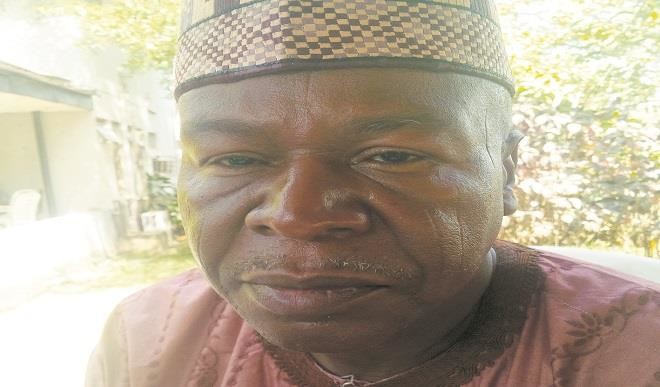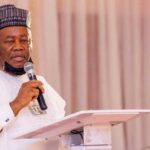
What are you doing to improve the fallen reading habit in Nigeria?
Well, poor reading culture was a result of lack of maintenance of the libraries and like any other culture it just has to start from childhood. We try to do some advocacy so that people can start reading at a tender age but unfortunately most of the schools are not properly equipped to encourage students to read. There are inadequate books and in some cases no libraries in the schools. Again, where there were libraries, you discover that they are not managed by professionals but by people who may not have the knowledge of the kind of books that are suitable for which group of students.
Learning environments are also not favourable; for instance, the National Library in Abuja being financed by the federal government is most times powered by a generator due to frequent public power outages. We don’t even have money to buy diesel. The furniture is not sufficient due to inadequate funding. We don’t have money to buy books and conduct readership promotion campaign this year. We usually go out to conduct campaigns but we don’t have money now. All these things have to be looked into.
The rate of illiteracy too, is high and you don’t expect an illiterate person to read. The National Commission for Mass Literacy is expected to step up advocacy on encouraging people to read. And it’s not just encouraging people to read, the right reading materials should be provided. There are few corporate organizations that organize literacy and numeracy campaigns for their members because they need to know how to maximize profit. It is true the reading culture is poor though I don’t have any data on it.
What exactly do you mean by the right books to read?
At a certain age, you have some fiction books for children and these books need to be produced within the cultural milieu so that children who grow in places where apples are not grown are not taught lessons with apples as teaching aids. Unfortunately, even the books with lessons on apples are pirated and the pictures are in black. How do you expect the pupils to believe the teacher if he says there is green, yellow and red apples. How do you want the pupils to connect?
Even adults need novels to read at their leisure time to have knowledge of what is happening in other parts of the world and these books cannot be found. You only see them at the airport book shops and they are very expensive. The books too, have their shortcomings. Reading failure has exerted a huge long-term consequence on children’s self-esteem and becoming productive citizens and lifelong learners.
Why are most public libraries in Nigeria suffering severe neglect?
It is because the people in charge do not make libraries a priority in their annual budgets. That is what we are struggling to address. Somebody will tell you to go and use the e-library but there are no facilities such as the computers. I think one of the best things is to encourage the establishment of libraries, and corporate organisations should donate books to these libraries. The books and government reports in the libraries must be preserved. If the materials are not preserved for future use, we can’t be a research-oriented nation and where there is no research, there won’t be any development. The few things we collected from the colonial masters, we keep on regurgitating. If we want to be among the developing nations in 20:2020; then we need to acknowledge the prominence of the books in our society. That will make us a knowledge driven society. To do this everyone should be involved in advocacy.
How would you explain library patronage among the people?
People actually patronize the National Library but its functions are different from public libraries. It is a repository library open to the public for reference and research. It is meant to collect and preserve intellectual output for posterity so that in the years to come people can come and make researches while in public library you can come and read and borrow books.
The law empowers us to collect every reading material produced in Nigeria. We collect three copies from private publishers and 25 copies from government publishers. Unfortunately, you discover that most of the government agencies are not complying, we try to do a lot of advocacy for them to realize but we are always facing funding challenges. People, who are supposed to see the importance of National Library as national monument, are either not educated about it or are not willing to release adequate monies to maintain it. So, we are appealing to the government and corporate organisations to come to our aid. That is how it is done in advanced countries; government can’t do everything, people who make a lot profit in their businesses could assist the government as part of their corporate social responsibilities. Government too, may assist by reducing their taxes.
Another major challenge is that the National Library is not properly housed; it hasn’t got a headquarter building. The government had already initiated a gigantic project as our headquarters which is supposed to house about 80 million items for 60 years. We have already spent our first 60 years as a library. The project is still ongoing.
The other problem we have is that we are the only National Library in the whole world that has branches. In other countries, they have one stand-alone library that faces preservation and research on digital development and so on. I recently attended the world digital conference and work summit. A lot of things are happening; people put cultural aspects on the internet. Apart from being a library, we are also a cultural institution, we are supposed to propagate the Nigerian culture especially the intangible ones such as the intellectual output of Nigerians. That is why we have the National Bibliography of Nigeria. We are supposed to assist the legislature in their debates. We need an internet portal to circulate our documents so that people can have access to them and I wish the president could sit in his office and access whatever we have been accumulating from 1964 to date, including colonial documents and committee reports. We have skilled manpower but no infrastructure thus; we need to complete works on the headquarters.
Why is it difficult for government to complete work on the National Library headquarters in Abuja?
The major problem with the project is lack of adequate funding. The monies released were insufficient for that gigantic building and you know if you don’t pay on time the price may change. Over N17 billion was required in the previous days to complete the project but it was reviewed. The consultants and the technical team should be able to tell you more about the project.
What safety measures are required to set up a library?
It is not every building you can turn into a library. In setting up a public library it is important to look at the clientele it will serve, so space is very important. That is why we need 300 or 1000-seats capacity library. National Libraries have more of storage spaces. Ours has five giant book boards that can take 80 million items including newspapers, books, CDs and pamphlets. The climate will be designed in such a way that the books will not deteriorate.

 Join Daily Trust WhatsApp Community For Quick Access To News and Happenings Around You.
Join Daily Trust WhatsApp Community For Quick Access To News and Happenings Around You.

